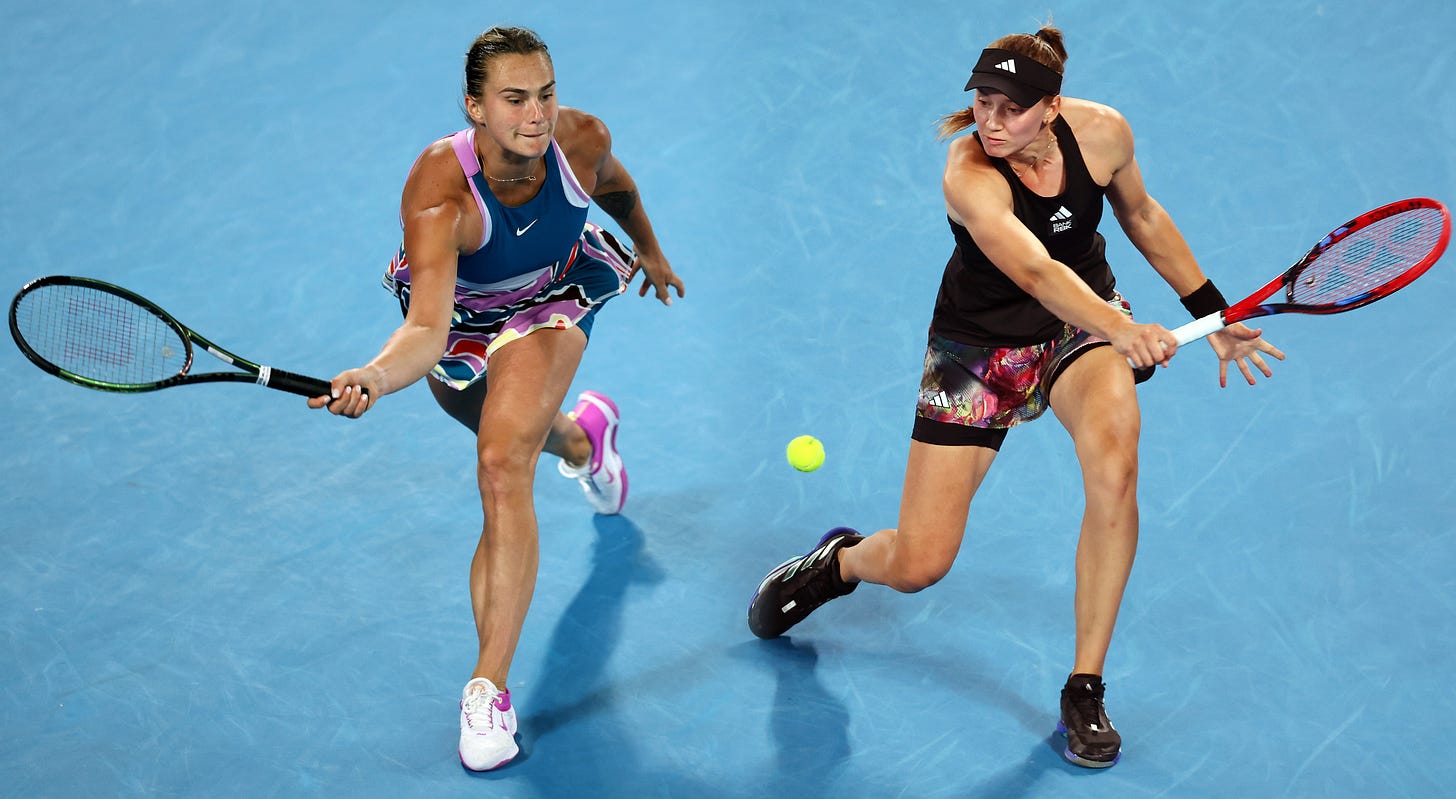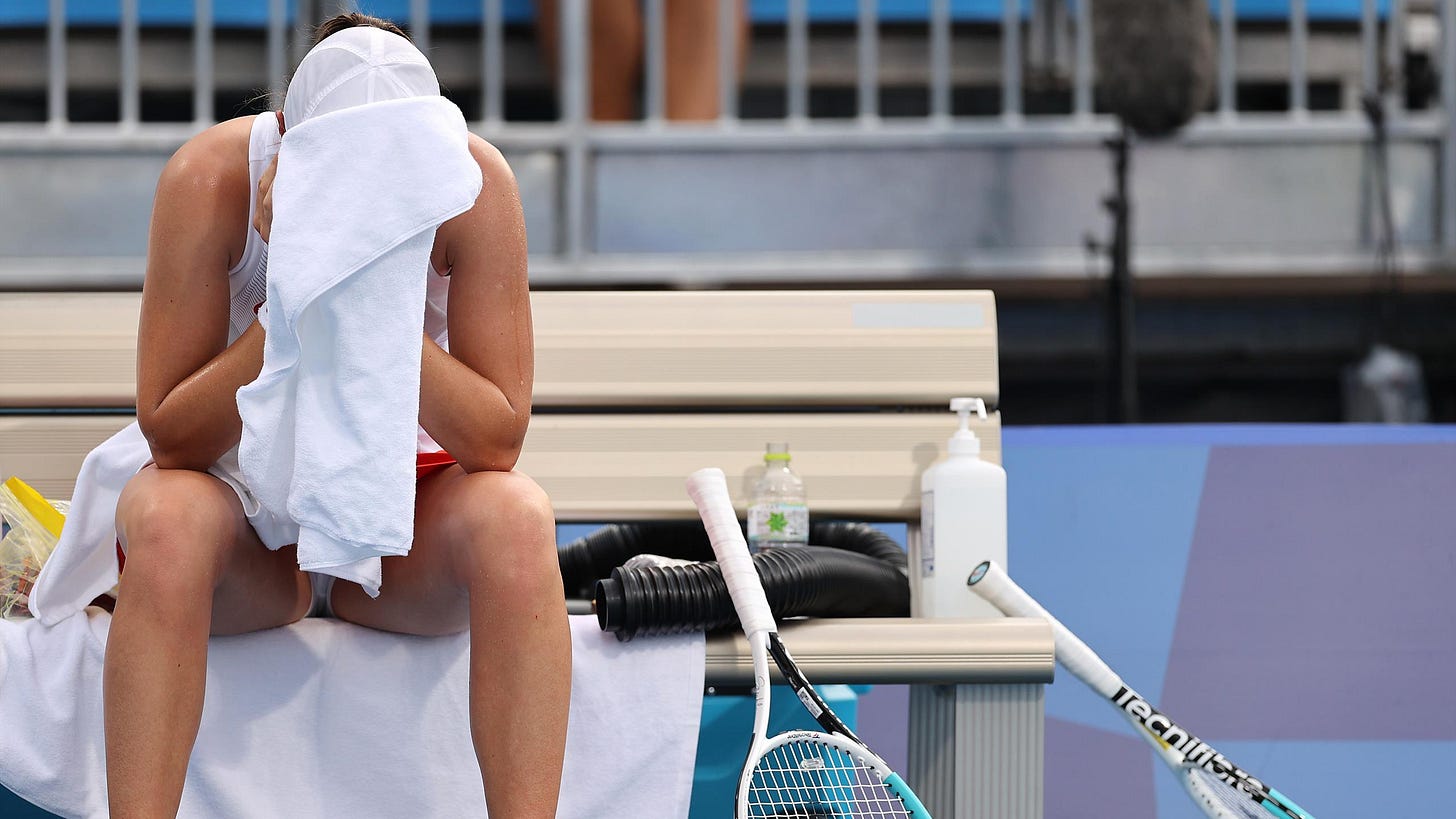Quiet, Not Fragile: A Discussion of Introverts and Sporting Culture
Talking opposites in personalities within sports and struggles athletes face behind closed doors
Throughout sports history, no matter what your favorite of the many sports out there may be, one thing is clear; the fanbases are loyal. Often portrayed as loud, obnoxious, and sometimes even violent, sports fanbases are no strangers to being seen as one of the most outspoken and dedicated support systems a person can have. But what if we flipped it around on the athletes instead? While athletes can often be grouped in with their fanbases as extroverted and passionate, presenting their support in the more traditional way of unapologetic cheers, fan-made signs and clothing & even booing the opposing team or player as a way of showing their loyalty, in today’s article, we will be discussing the less represented within the athletic community; introverted athletes. As I can only speak for a few sports, I will be discussing tennis, as it is the sport with the most examples I can think of.
Tennis, while not the most popular sport in America, can be known for various things depending on what you ask the average person. Perhaps it is the class of tournaments such as Wimbledon, or the sound-breaking grunts and shrieks that come out of the players mouths as they hit the ball. Whatever the case may be, tennis among fans can be viewed as a friendly sport, where players of all countries can come together to support each other, win or lose. Despite that, there are rivalries, as with any other sport, both friendly towards and overtly against the other player.

The known rivalry between Aryna Sabalenka and Elena Rybakina is one of an ‘opposites attract’ trope; Aryna, the girl with the scream-like grunt who is always seen as the outgoing and bubbly personality off court, versus the calm and poised Elena, who is one of the quietest on court in comparison, rarely showing a smile even after a major win. In a ‘Tiger’ vs. ‘Silent Assassin’ battle, which seems to go back and forth between wins whenever they play, there is no doubt that Aryna is the fire and Elena is the ice of the rivalry.
Though Elena is one of the biggest introverts on tour, do not mistake her silence for allowance; she has consistently been one of the main figures on the women’s tennis tour to speak out against things such as poor scheduling and terrible playing conditions, seen in the 2023 Montreal Masters and 2023 WTA Finals, respectively. Her voice is important in the grand scheme of things, as it shows that she is not someone who should be written off from important discussions only because she is more quiet compared to the average player.
Another famous top athlete who is more on the introverted side? World number one, multiple record breaker and history maker, ‘Miss Consistent’ herself; Iga Swiatek. In an interview with The Players’ Tribune, Iga discusses her introverted nature;
‘‘There was a time in my life when I was so introverted that speaking to people was a real challenge. Until I was 17 or 18, it was hard sometimes to look people in the eyes. I hated how hard it was for me. It felt really bad not being able to make connections. But with some people, my mind just went blank, and I didn’t know what to say. Small talk wasn’t natural for me.’’ she informs us, and the difficult nature of doing something as small as looking someone in the eyes when speaking can be seen as relatable to select readers.
An important thing to note about introverts is that they are more sensitive than the average person. There are people who expect athletes to hide their emotions from the world and only express them when the cameras are off, behind closed doors from everyone around them. If an athlete cries, they are seen as weak, or not able to compete with the rest of the field. What people often forget, however, is that athletes are human just like us. They can have amazing wins and devastating losses within a matter of weeks. Negative comments, such as blaming their emotions on losing, can lead to worsening mental health as well, especially when so much pressure is put on you as a top athlete.

Iga also makes sure to express her thoughts on this topic, after her loss in the second round of the Tokyo 2020 Olympics.
“It seems to me that 90 percent of players cry after losing matches, this time it happened to me. We are also human. Competing at the highest level every week is not easy. Tennis is such a frustrating sport at times.” she states.
With the weight of the world on your shoulders, as it is often seen for world class athletes, crying should not be seen as a sign of weakness. To me, it shows that you are motivated and dedicated to your craft, always wanting to win and prove to everyone that you are capable of much more than assumed. It is important to remember that athletes, as previously stated, are human through everything they experience. We should always keep that fact in the front of our minds.
Despite the many struggles of being a professional athlete, it costs nothing to show compassion, understanding and support for those who are in need of it, some more than others. We have all faced struggles in our lives, and standing with people will always be more beneficial than going against them. In a world where mental health is often seen as a taboo, be someone that doesn’t make it seem that way. Athletes, and humans as a whole, deserve to live in a world where it is seen as the norm to be outspoken about such an important topic.
Though introverts are seen as the minority in sporting culture, that does not mean they matter less than any of their peers. It feels good to know there are world class athletes whom, despite being at the top, remain quiet and reserved through it all. It sets a good example to young introverted children that if someone like Elena Rybakina or Iga Swiatek can win big and bring honor to their respective countries, so can they. Hopefully, we have many more introverts as time goes on throughout sports history. They are more valuable to fans than they realize.


